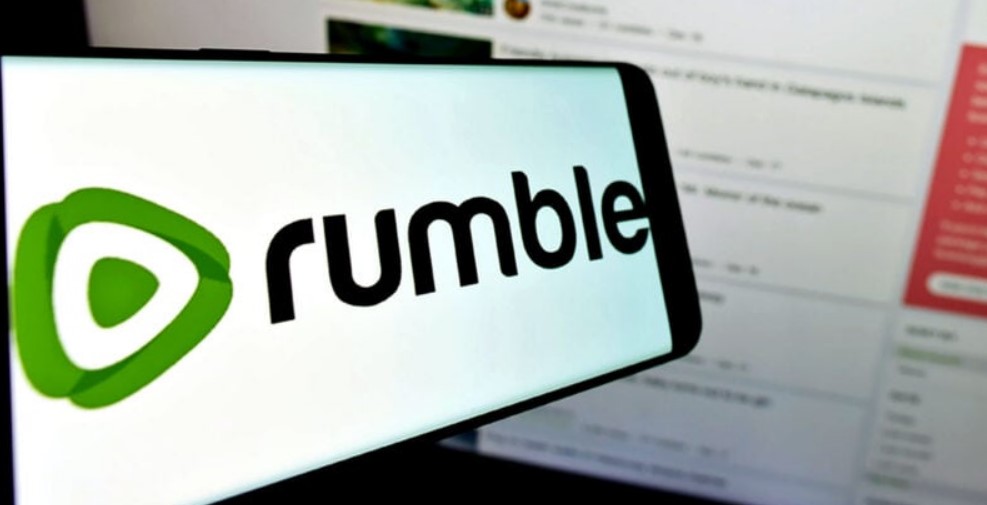by Michael Nevradakis, Activist Post:

The video-sharing platform Rumble and a constitutional law scholar are among those suing New York over the state’s new “Online Hate Speech Law,” claiming the law’s language is so broad it could put bloggers at risk of financial ruin merely for sharing opinions the state disfavors.
The nonprofit Foundation for Individual Rights and Expression (FIRE) last week filed the lawsuit in the U.S. District Court for the Southern District of New York on behalf of three plaintiffs: online video-sharing platform Rumble, its “Locals” subscription platform and First Amendment scholar Eugene Volokh, publisher of “The Volokh Conspiracy” blog.
TRUTH LIVES on at https://sgtreport.tv/
The lawsuit names New York State Attorney General Letitia James as the sole defendant.
According to the plaintiffs, the legislation — which took effect Dec. 3 — will oblige online platforms to target and censor speech that is protected by the First Amendment of the U.S. Constitution.
In a statement, FIRE said, “The law is titled ‘Social media networks; hateful conduct prohibited,’ but it actually targets speech the state doesn’t like — even if that speech is fully protected by the First Amendment.”
According to the legislation, online platforms are required to “provide and maintain mechanisms for reporting hateful conduct on their platform,” and are subject to fines of up to $1,000 per day for non-compliance.
The plaintiffs are asking the court to declare the new legislation in violation of the First and 14th Amendments of the U.S. Constitution, which protect free speech and due process, respectively.
They also seek a permanent injunction against enforcement of the law, a declaration that the new law violates Section 230 of the Communications Decency Act and attorney’s fees and costs.
According to the lawsuit, the plaintiffs:
Seek to promote free and open debate on their platforms because they believe in the free marketplace of ideas. They publish all manner of speech and do not believe that the speech targeted by the Online Hate Speech Law should be chilled, prohibited, or removed as a result of a government edict.
They do not want to parrot the state’s message or be required to reply to every complaint of alleged ‘hate speech.’
However, it is also possible that, in their efforts to potentially comply with the provisions of New York’s new law, social media platforms will make fundamental changes to their platforms and their policies that will affect users everywhere, and not just in the one particular state where the legislation is in force.
Another possibility might be that certain websites may begin choosing to “geofence” or “geoblock” — a practice by which IP (internet protocol) addresses from particular geographic regions, such as states or countries, are blocked by a website or online service provider.
This is, for instance, an increasingly common practice with many official online services of U.S. states — a practice on the part of state governments that appears to have evaded wider attention, although it is common in certain industries.
Alex Pattakos, Ph.D., co-founder of the Global Meaning Institute and contributing writer for Psychology Today, was permanently banned by social media platform LinkedIn, which is owned by Microsoft.
Pattakos told The Defender why he’s concerned about censorship and its potential expansion:
My recent experience with the ‘legacy’ social media platforms has been unprecedented. In this regard, I have had my posts deemed ‘misinformation’ and censored by online moderators and so-called ‘fact-checkers’ on numerous occasions.
Most recently, I was suspended permanently from LinkedIn for sharing information and empirical evidence that challenged the ‘mainstream’ narrative on a subject of major concern. It was disheartening to have an unknown, yet obviously biased, moderator restrict my freedom of expression in this way.
For Pattakos, censorship of content on social media platforms, whether by the platforms themselves or by the government, represents “a direct assault” on democracy and freedom rather than protecting those ideals.
“As a subject matter expert in the disciplines of political science, existential philosophy and humanistic psychology, as well as someone who has always been committed to the scientific method and authentic dialogue, such treatment is obviously personal,” Pattakos said. “However, more importantly, it is a direct assault on democratic principles and human freedom.”
Law requires platforms to respond to ‘hateful’ content — but doesn’t define it
According to Reclaim The Net, New York’s new law will require online platforms to develop policies explaining how they will respond to user-generated content that “vilify, humiliate, or incite violence,” on the basis of protected classes such as gender, race or religion.
Platforms also will be obliged to create mechanisms through which users and visitors can submit complaints about “hateful content,” requiring the platforms to directly respond to such complaints or face potential investigations, subpoenas and fines levied directly by the attorney general’s office.
The legislation was passed in June and was signed into law by Gov. Kathy Hochul, a Democrat, who was since elected to a full term in office.
According to Law and Crime, the legislation was first proposed in the aftermath of a mass shooting at a Buffalo grocery store. In October, James and Hochul released a report that “details [the] shooter’s radicalization on fringe websites,” such as 4chan, and his “use of mainstream platforms to livestream violence.”




